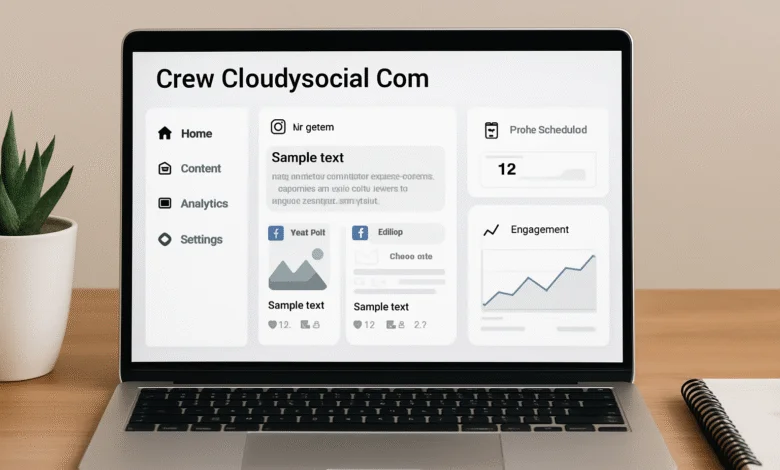The self-employed life has its perks. You set your own hours, you don’t have to answer to anybody but yourself, and you get a lot of freedom in how you go about your work.
But self-employment also comes with some serious downsides, too. There’s no one else to take the blame when things go wrong, for starters.
So, as a small business owner, you must know the exact steps to take before starting a self-employed business.
This article will outline what it takes to start your own business. It will give you a checklist of things you need to do before beginning self-employment.
You don’t want this information too late. Let’s get started!
1. Conduct Market Research
This is the self-employment checklist point where you start to get into the nitty-gritty. Your first task is market research, or, in other words, looking around for a niche that hasn’t been over-saturated by other self-employed businesses doing very similar things.
If you’re an expert at something, then this point will be easy. All you need to do is go around your local area and see if there are people willing to pay you for your services.
However, if it’s not an easy skill to transfer into self-employment, look at what others in your line of work are doing with their business. Consider how they promote themselves, and this will give you good ideas of where you should focus your business.
2. Write a Business Plan
Make sure to write down what problem your business will solve for customers and how you plan on doing it. This might seem like a silly step but bear in mind that this is the plan that you’ll be pitching to investors if ever asked. And investors only give money when they see something good based on their criteria.
A good rule of thumb in creating this document is to think about the people who would possibly pay for your services or products. Do research on them, then create an outline based on those kinds of people.
While at it, consider your budget. Business planning should include as much detail as possible, including how much money you can expect to make from the business, how much money you’ll be spending on it, and what your expenses will be. Your budget should include a plan for both startup costs and ongoing costs, too.
3. Get the Funding You Need
Nowadays, finding investors for a small business isn’t that hard. In fact, if you have an idea for a startup company, then people will actually line up to finance it.
However, that doesn’t mean you shouldn’t follow the process of applying for funding to prevent any future problems when your business is on the verge of growing bigger and better. Many businesses fail because they ran out of money before they even had a chance to start off properly.
It’s important to note that not all self-employed startups will qualify for bank loans or grants from the government. The best solution? Ask family members and friends for help, or turn to online lending sites instead. These sites offer quick money with no hassle so that you can invest in your startup immediately.
4. Secure Your Startup Location
When you’re planning to start a business, what you need is an office or someplace where potential customers will come to talk to you about your services or products (or both).
But if you’re starting on a low budget, then you mustn’t let this stop you from pursuing your dream career as a self-employed entrepreneur. A good alternative would be heading over to the nearest coffee shop or library for your initial meetings with prospective clients and investors. But when these venues can’t accommodate all of the people who want to see you, it’s time that you considered looking for a small office or workspace.
5. Choose Business Structure
Before you start your business and make any serious decisions, you must be fully aware of the different business structures available to entrepreneurs. There are basically three main business ownership options: a sole trader, a partnership, or a company. Knowing which one is best for your startup can save you both time and money in the long run, so don’t rush by this self-employment checklist item.
6. Choose a Business Name
When starting a self-employed business, choosing the right name for your startup can be the first step towards success. But if you’re not careful with this portion of the checklist, then the whole thing might just come crashing down before it’s even had a chance to start.
In making your decision on which name is best, remember that you have several options: incorporating a company or creating an unincorporated business entity, such as a sole trader or partnership.
7. Register Your Business
Doing this may come across as an arbitrary step in the self-employment checklist process, but it’s actually one of the most important things you can do when organizing your startup. Business registration is something that business owners need to comply with at all times. Failing to register for self-employment tax, even by just a day, can have huge consequences later on, so make sure you get it right the first time.
8. Apply for an Employer Identification Number (EIN)
If you are going by the sole-trader business structure, you’ll need to apply for an EIN. This is the only way that the government will know of your startup and how it applies to tax laws.
The number you get will act as proof of identity, ensuring people that you’re a legitimate company.
9. Apply for Business Licenses
Sometimes, it’s better to get a license and permit as soon as possible instead of waiting until the last second. However, this rule doesn’t apply to every single business out there, since some startups do not need licenses or permits whatsoever. So, make sure that you check with your local government regarding what you need before applying for anything else on this self-employment checklist item list.
10. Get Business Insurance
Business insurance is another thing that you need to apply for soon after applying for your business license. You can head on over to any local insurance provider and get a quote from them on how much you’ll have to pay monthly or yearly for your policy. Consider taking self employment workers comp insurance since this is something that you may need in the event of an accident.
Get Started on Self-Employment
If you follow these ten self-employment checklist items, then your business will be sure to succeed. By getting all of the steps included in this list out of the way ahead of time, it’ll make starting up much easier on you — and that’s something we can all appreciate!
For more interesting and useful information about doing business, check out our other articles.










